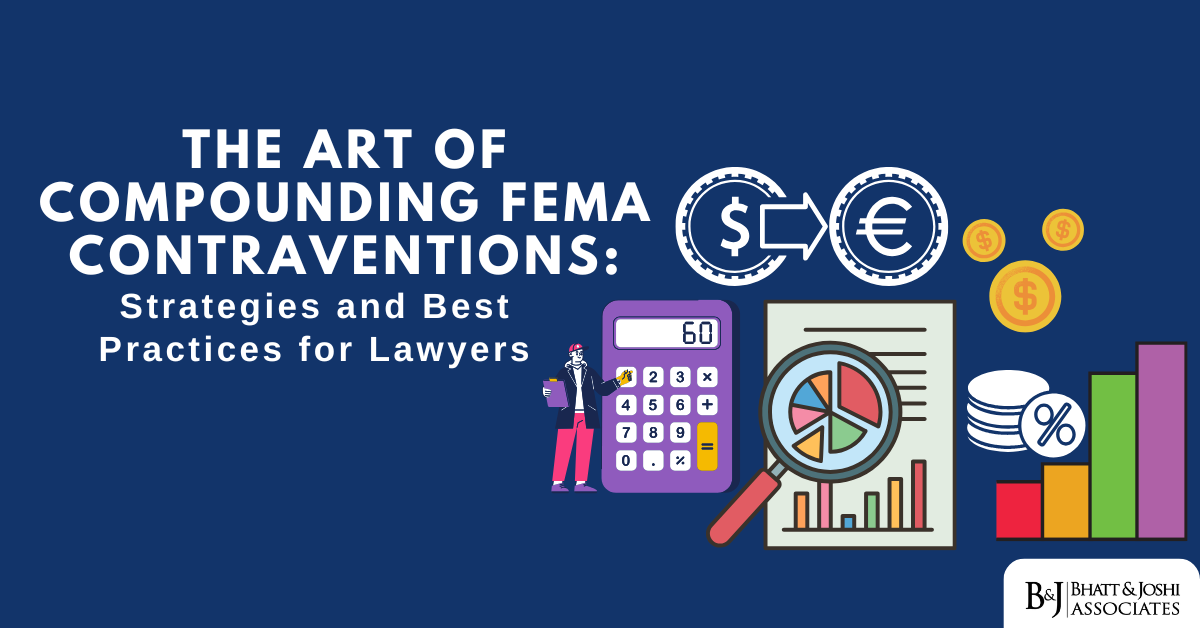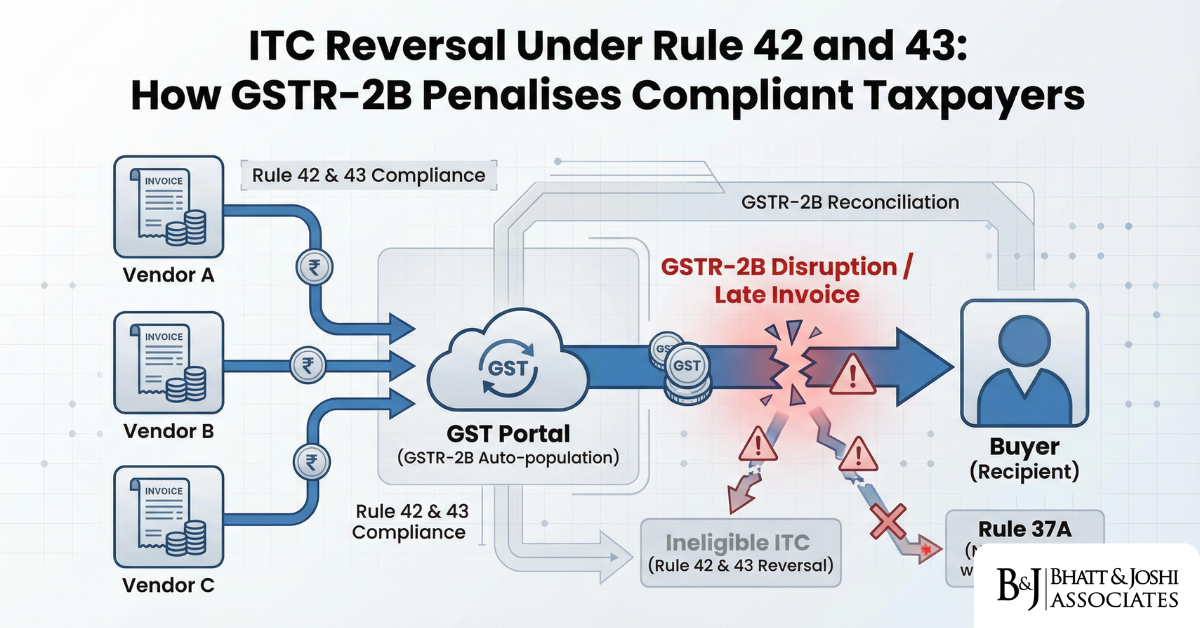Compounding Contraventions under FEMA: Strategies and Best Practices for Lawyers
Introduction
For legal practitioners navigating the complexities of the Foreign Exchange Management Act, 1999 (FEMA), understanding the mechanism of compounding of contraventions is paramount. It offers a strategic pathway for clients to resolve potential breaches of FEMA without undergoing lengthy and potentially costly adjudication proceedings. This guide delves into the art of compounding, outlining key strategies and best practices for lawyers advising clients on FEMA matters.
Understanding the Essence of Compounding Under FEMA
Compounding under FEMA, as outlined in Section 15 and further detailed in the Foreign Exchange (Compounding Proceedings) Rules, 2000, provides an avenue for individuals or entities who have contravened certain provisions of FEMA to make an application to the relevant authority – either the Reserve Bank of India (RBI) or the Directorate of Enforcement (ED) – to admit the contravention voluntarily and seek its resolution by paying a monetary penalty.
It’s crucial to recognise that compounding is not a ‘guilt-free’ process. While it avoids adjudication, it requires an admission of the contravention. However, it can be a pragmatic approach to mitigate potential liabilities and reputational damage associated with formal legal proceedings.
Key Strategies and Best Practices for Lawyers
- Thorough Initial Assessment: The first step is a comprehensive evaluation of the alleged contravention. This involves:
- Identifying the specific provisions of FEMA that have been potentially violated.
- Determining the quantum of the contravention, as this influences the compounding authority (RBI or different levels within the ED).
- Assessing the eligibility for compounding. Notably, no contravention can be compounded if an appeal has been filed under Section 17 or Section 19 of the Act. Certain serious contraventions suspected of money laundering, terror financing, or affecting national sovereignty may also be remitted to the Adjudicating Authority instead of being compounded.
- Evaluating the evidence and the likelihood of a successful defence in adjudication versus the expediency of compounding.
- Strategic Decision-Making: Compounding vs. Adjudication: Lawyers must advise their clients on whether compounding is the most advantageous course of action. Factors to consider include:
- The potential penalty in adjudication, which can be up to three times the sum involved.
- The time and cost savings associated with compounding compared to protracted legal proceedings.
- The discretionary nature of compounding; the RBI or ED is not obligated to compound every contravention.
- The impact on future regulatory scrutiny.
- Meticulous Application Preparation: A well-prepared compounding application is crucial for a favourable outcome. This involves:
- Making a formal application to the designated authority (RBI or ED) as per the Compounding Rules.
- Clearly and unequivocally admitting the contravention.
- Providing all necessary information, records, and documents relevant to the contravention. This may include transaction documents, bank statements, and explanations for the lapse.
- Ensuring accuracy and completeness of all information provided.
- Referring to relevant RBI circulars and notifications that may provide guidance on specific types of contraventions.
- Effective Representation and Negotiation: Lawyers play a vital role in representing their clients before the compounding authority:
- Presenting the case persuasively, highlighting mitigating circumstances and demonstrating a commitment to future compliance.
- Responding promptly and comprehensively to any queries or requests for additional information from the authority.
- Seeking a fair and reasonable compounding penalty, although the penalty is determined by the RBI/ED based on guidelines.
- Understanding the powers of the Compounding Authority to call for any information.
- Timely Compliance with the Compounding Order: Once a compounding order is issued, it is imperative to ensure timely payment of the compounded amount within the specified period. Failure to do so will result in the application being deemed never to have been made, and the client may face adjudication proceedings.
- Understanding the Scope and Limitations: Lawyers must be aware of the limitations of compounding:
- Compounding is generally allowed for contraventions under Section 13(1) of FEMA.
- Contraventions under Section 3(a) of FEMA (dealing with dealing in or transfer of foreign exchange etc.) have specific compounding authorities based on the sum involved.
- Compounding does not provide immunity from other potential legal actions if the contravention involves offences under other laws.
Key Considerations for Legal Practitioners
- Authority to Compound: Be precise about whether the application should be made to the RBI or the ED based on the nature and quantum of the contravention.
- Opportunity of Being Heard: The Compounding Authority must provide an opportunity of being heard to all concerned parties. Lawyers should ensure their clients are well-prepared for this interaction.
- Timeframe for Compounding: The compounding process should ideally be completed within 180 days from the date of receipt of the application, although delays can occur.
- No Appeal Against Compounding Order: There is no provision for appeal against a compounding order. Therefore, a thorough evaluation before opting for compounding is essential.
- Transparency: While the process aims for expediency, maintaining transparency in all communications with the compounding authority is crucial.
Conclusion: Navigating Towards Resolution
The art of compounding FEMA contraventions lies in a lawyer’s ability to strategically assess the situation, meticulously prepare the application, effectively represent the client, and ensure timely compliance. By mastering these strategies and adhering to best practices, legal practitioners can guide their clients towards a pragmatic resolution, minimising legal risks and fostering a culture of compliance with India’s foreign exchange regulations.
Citations:
- Introduction to Investigation & Adjudication under FEMA
- All about Foreign Exchange Management Act, 1999 – iPleaders
- Beyond Boundaries: Absence of Limitation in FEMA Enforcement
- FEMA – Foreign Exchange Management – Articles – Knowledge sharing
- Foreign Exchange Management Act – FEMA
- Understanding FEMA Regulations in India | IndusInd Bank
- Understanding the Foreign Exchange Management Act | LawCrust
Article by: Aditya Bhatt
Association: Bhatt and Joshi
 Whatsapp
Whatsapp



